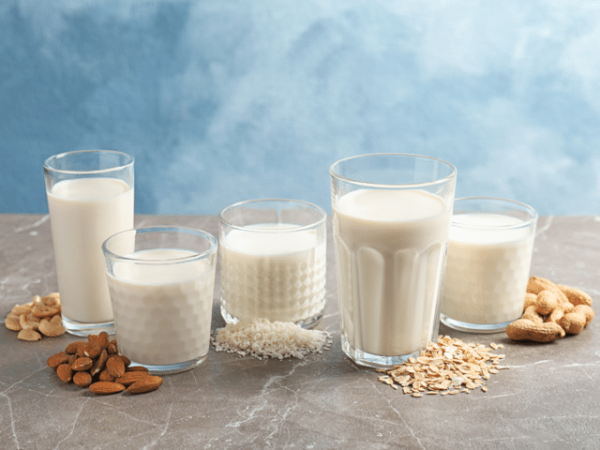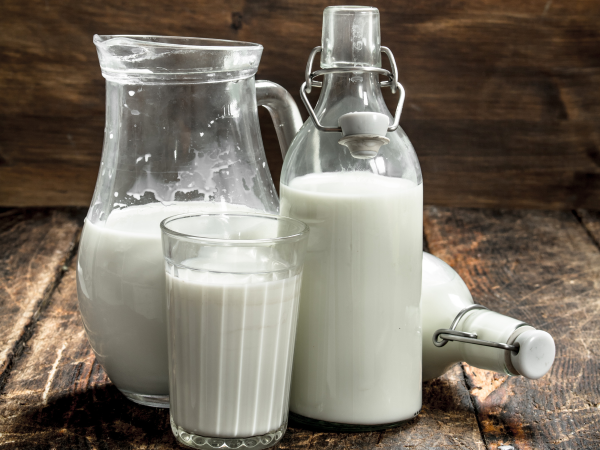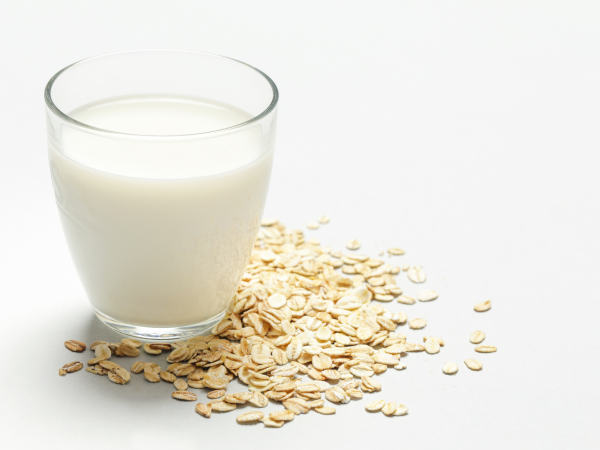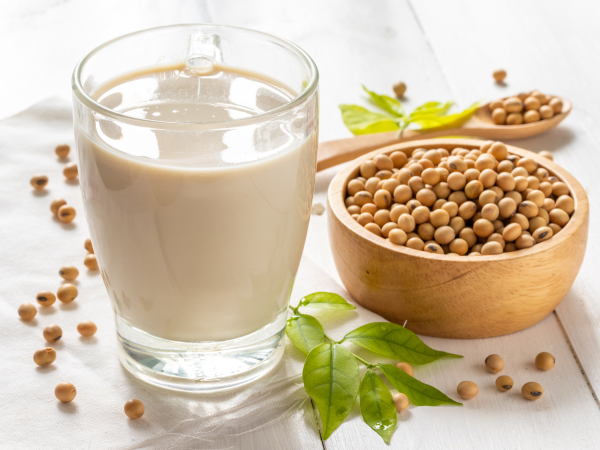
Many people in the US and parts of Asia choose milk as a popular beverage. Milk, which is rich in calcium, has been used for thousands of years and is said to be one of the main sources of crucial nutrients.
As kids, all of us would have had a glass almost daily and would never skip it especially if it was part of breakfast. However, over the years with our choice of beverages and the rise of lactose intolerance conditions increased, milk lost its fame to caffeine.
Milk is still a staple in many cultures and traditions. With Western diets taking over, it is now available in more than one type. Milk is extracted from cows and pasteurized for consumption. However, people with lactose intolerance cannot consume milk, and those who are allergic to it can choose vegan options like almond milk, coconut milk, and soy milk .
With multiple choices available on the shelf of your grocery store it has now created a situation to find out which milk is healthiest and best for you for consumption. The healthiest option for you is based on your nutritional needs and dietary preferences.
Almond milk

Made from the nut, almond milk is unsweetened and low in calories. It contains 30 - 50 calories per cup, and the milk is high in Vitamin E and antioxidants, which help support skin health and immunity. The packaged almond milk is fortified with Vitamin D and calcium, making it a healthy drink for bones. Almond milk, however, is low in protein, less than 1 gram per cup.
Coconut milk
Coconut milk tastes rich and creamy and it is naturally sweetened. Coconut milk is often used in cooking and/or used to make coffee. The milk has medium-chain triglycerides that boost energy and metabolism. Coconut milk has saturated fat in it and does not allow you to drink more than a cup at once. As coconut milk is only available fresh, the milk is low in protein and calcium.
Pasteurized cow milk

The cow milk is high in calcium and protein and it helps in muscle growth. The milk produced by the cow is also rich in calcium, potassium, and Vitamins B12 and D. The milk from the cow also contains healthy fat that supports brain and hormone health. The milk is the best prion for people who require a nutrient-dense option.
Oat milk

Oat milk is a plant-based option and is often used in coffee and cereal. The milk almost looks like pasteurized cow milk and has a slightly sweet flavour to it. Oat milk is high in fiber and also contains calcium, Vitamins B 12, and D, and is high in calories.
Soy milk

Soy milk is nutritious and is a healthy alternative to cow's milk. Milk is a good source of protein as soy produces all 9 essential amino acids in it. It also has calcium, Vitamin D, and low saturated fat in it that help in lowering cholesterol levels and reduce the risk of cardiovascular issues. However, soy milk tastes a little unpleasant and tastes more like beany.
How to choose the right milk base for you?
Weight Management: Almond milk (unsweetened) is the best choice due to its low-calorie content.
Protein Needs: Cow’s whole milk is the most protein-rich.
Heart Health: Almond milk and soy milk are the lowest in saturated fat.
Lactose Intolerance or Vegan Diet: Almond or coconut milk is better as they are naturally lactose-free.
Different milk offer different nutrients and mostly they are all rich in calcium, protein, and Vitamin D. Many have allergies to certain types of nuts lactose, or even soy, so make sure to look out for the eight options that suit your body and make sure to check the fat content in milk as well as there are additive and sweeteners added to the milk that are brought right out of shelf.
 Many people in the US and parts of Asia choose milk as a popular beverage. Milk, which is rich in calcium, has been used for thousands of years and is said to be one of the main sources of crucial nutrients.
Many people in the US and parts of Asia choose milk as a popular beverage. Milk, which is rich in calcium, has been used for thousands of years and is said to be one of the main sources of crucial nutrients.
 Made from the nut, almond milk is unsweetened and low in calories. It contains 30 - 50 calories per cup, and the milk is high in Vitamin E and antioxidants, which help support skin health and immunity. The packaged almond milk is fortified with Vitamin D and calcium, making it a healthy drink for bones. Almond milk, however, is low in protein, less than 1 gram per cup.
Made from the nut, almond milk is unsweetened and low in calories. It contains 30 - 50 calories per cup, and the milk is high in Vitamin E and antioxidants, which help support skin health and immunity. The packaged almond milk is fortified with Vitamin D and calcium, making it a healthy drink for bones. Almond milk, however, is low in protein, less than 1 gram per cup.


 Soy milk is nutritious and is a healthy alternative to cow's milk. Milk is a good source of protein as soy produces all 9 essential amino acids in it. It also has calcium, Vitamin D, and low saturated fat in it that help in lowering cholesterol levels and reduce the risk of cardiovascular issues. However, soy milk tastes a little unpleasant and tastes more like beany.
Soy milk is nutritious and is a healthy alternative to cow's milk. Milk is a good source of protein as soy produces all 9 essential amino acids in it. It also has calcium, Vitamin D, and low saturated fat in it that help in lowering cholesterol levels and reduce the risk of cardiovascular issues. However, soy milk tastes a little unpleasant and tastes more like beany.